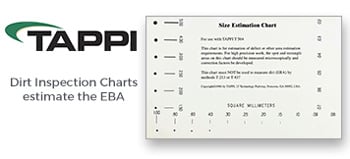Black liquor evaporator upgrades— life cycle cost analysis, TAPPI Journal March 2021
Application: The LCCA method presented may be used by readers to determine if a major rebuild or a new installation is warranted in their mill. LCCA is a more long-term economic analysis that aligns more with the longer life cycle timeframes of evaporator systems rather than based on short-term analyses, such as return on investment or payback period. The LCCA input data can be customized to fit a given mill’s situation to yield accurate results, and follow-on sensitivity analyses can help minimize investment risks due to potential fluctuations in future economic conditions.
TAPPI conference proceedings and presentations, technical papers, and publication articles provide technical and management data and solutions on topics covering the Pulp, Paper, Tissue, Corrugated Packaging, Flexible Packaging, Nanotechnology and Converting Industries.
Simply select the quantity, add to your cart and your conference paper, presentation or article will be available for immediate download.





